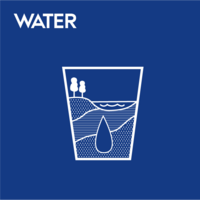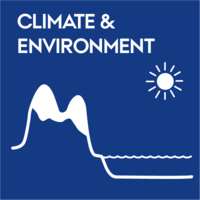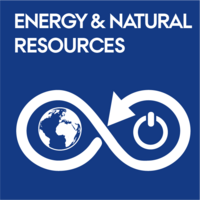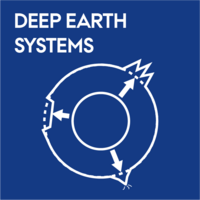
Investigate how geophysical methods can help solving societal challenges related to water, pollution, and raw materials.
This specialization aims at providing you with an understanding of geophysical methods and how these can be used to understand and address challenges related to water, pollution and raw materials. The course topics in this specialization build upon and expand the courses in hydrogeophysics, hydrology, and glacial geology. The course topics have a strong focus on quantitative methods and numerical modeling. Up to 20 ECTS of your own choice from other specializations are allowed.
You will get a deeper understanding of the geophysical methods used in actual investigations, and combining this with deeper understanding of water flow and the glacial geology and sedimentology in which all the processes take place will give you a comprehensive set of tools to dive into the societal challenges on water, raw materials and pollution which authorities and consulting companies are working with daily.
The course work includes lectures, exercises and a field trip in which some of the methods are used in practice.

This specialization provides an understanding of the processes that drives past and present climate change and the evolution of landscapes and ice-sheets from a geological perspective. The course topics in this specialization build upon and expand the courses in geophysics, numerical methods, glacial geology, sedimentology and geochemistry. Equally, it allows combining 10 ECTS points from other specializations. The course topics have a strong focus on quantitative methods and numerical modeling.
The Climate and Earth Surface Systems specialization broadens your geophysical and geological background to obtain an integrated and comprehensive knowledge of how geoscience is used to understand the dynamics of the climate system, including glacial processes, landscape evolution, ocean and atmospheric circulation, solar and volcanic forcing as well as the role of large-scale Earth processes on climate and cryosphere.
The course work includes lectures, practicals/exercises and seminars. An optional field trip (marine cruise) is available through the course “Marine Geoscience”

Help solving the ever increasing demands for sustainable and fossil energy by combining geophysical and geological methods for subsurface analysis.
The Course topics in this specialization deals with descriptive and numerical analysis of the deposition of sediments in sedimentary basins from the pre Permian to recent including numerical modelling, sequence stratigraphy, sedimentology and structural geology. It is possible to include up to 30 ECTS from other specialisations in order to individualize the masters program.
The objective of the specialization is to give the student a deep understanding of the mechanisms of basin formation and infill in order to be able to predict the geotechnical properties (used for placing e.q. offshore windfarms), analyse the geothermal energy resources and optimize the production sites, and understanding the generation and production of fossil fuel. The programs are designed to include both students with a geological and a geophysical background and includes lectures, practicals, seminars and a field course including a cruise for seismic data acquisition. The MSc thesis project is preferable conducted in collaboration with energy industry partners.

Combine the geophysical characteristics with the chemical and physical properties of rocks to understand the structure and dynamic of Earth.
The course topics in this specialization build upon and expand the courses in geophysics, mineralogy, geochemistry and structural geology. Equally, it allows combining 15 ECTS points from other specializations.
The Deep Earth specialization broadens your geophysical and petrological background to obtain an integrated and comprehensive knowledge of structure, properties, composition and dynamic processes in the crust-lithosphere-asthenosphere system. It provides an understanding of the formation and evolution of continents, mountain belts and sedimentary basins with their energy resources, and deals with the localization and characteristics of a variety of geo-materials including metallic resources.
The course work includes lectures, practicals, seminars, and a field trip related to the course petrology.